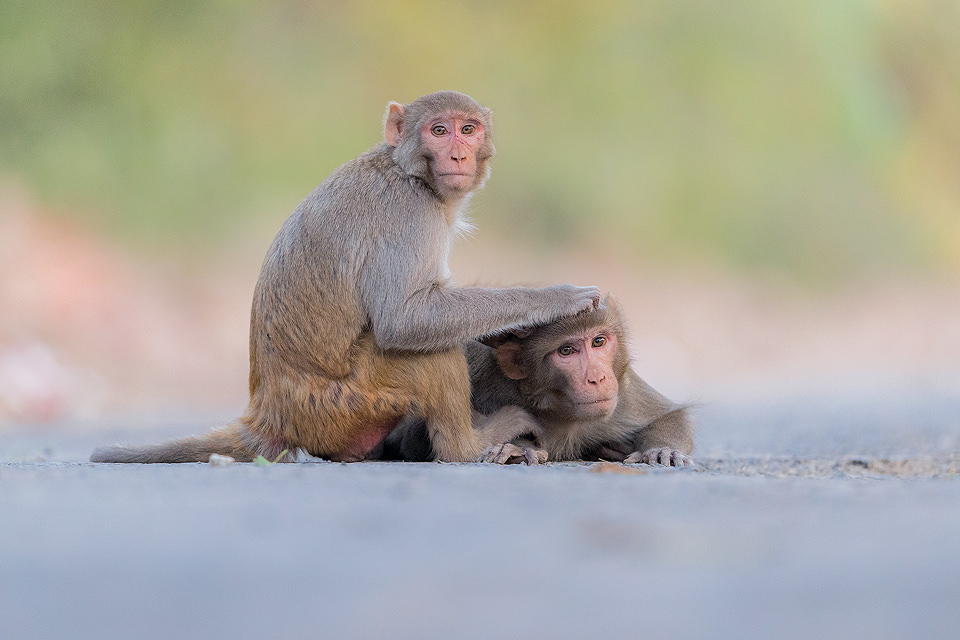Grooming Rhesus Macaques
Grooming Rhesus Macaques, Aravalli Hills, New Delhi, India. Mutual grooming is an important part of macaque society. It enables them to form strong and lasting bonds and establish troop hierarchy. Rhesus Macaques inhabit many of New Delhi’s many green spaces and have adapted incredibly well to urban life.
Grooming Rhesus Macaques: About Rhesus Macaques:
The Rhesus Macaque (Macaca mulatta) is an old world monkey found throughout central and Southern Asia. Thanks to their wide distribution and large population size, they are listed as Least Concern in the IUCN Red List. Rhesus macaques have the largest geographic range of any primate (second only to humans) occupying a diverse range of habitats. As a result they can be found in jungles and mountain forests, grasslands and arid plains and particularly in India; urban areas. Their adaptability as a species makes them highly successful and in some areas they are so numerous they are considered a major pest.
Like many primates Rhesus macaque’s are omnivorous, eating both vegetable matter and insects and small animals. They live in socially complex and noisy troops that can sometimes include up to 200 monkeys.
You can find out more about the Rhesus Macaque here.
